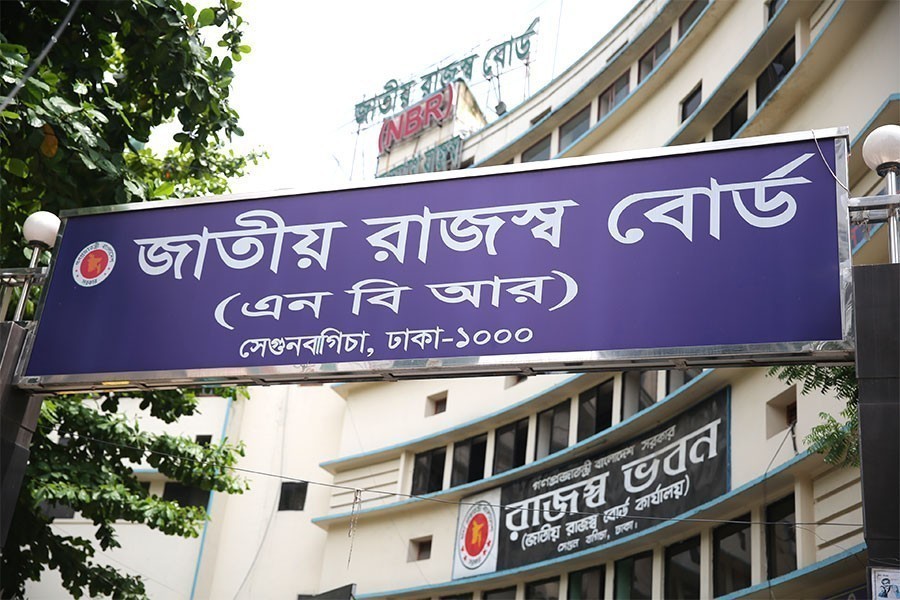
Published :
Updated :

The stakeholders concerned have identified a number of loopholes in the draft income tax law that they think might hinder the operations of both foreign and local investors if the new law is enacted as per the draft.
They sought more time to further scrutinize the provisions of the draft to avert possible future complexities and help make it a time befitting one amid fast changing business environments at home and abroad.
The National Board of Revenue (NBR) published the draft last month, aimed at mobilising public opinion as part of a process to replace the Income Tax Ordinance-1984.
Although the NBR had planned to finalise the draft by December next, relevant stakeholders at a NBR seminar on Thursday sought time to discuss its pros and cons before enacting the law.
Presiding over the seminar, NBR chairman Abu Hena Md Rahmatul Muneem said the government would give enough time to hold discussions on the draft before enacting the law.
Attorney General Abu Mohammad Amin Uddin attended the event as the chief guest.
Former tax officials, academics, accounting professionals, and representatives from the Metropolitan Chamber of Commerce and Industry (MCCI), the Foreign Investors' Chamber of Commerce and Industry (FICCI) and the Institute of Chartered Accountants of Bangladesh (ICAB) were present at the seminar in a city hotel.
Addressing the programme, tariff and taxation sub-committee chairman of the MCCI Adeeb H Khan suggested addressing some 'conceptually wrong' issues in the proposed provisions regarding the withholding tax.
The rates of withholding tax should be imposed through conducting proper study on different sectors' income, former income tax member Aminur Rahman said, adding that the rates proposed do not match with the income of the respective sectors.
He also viewed that the minimum tax payment obligation for the businesses went against the principle and that the obligation was initially imposed only on six sectors, but gradually expanded to 30 sectors until now.
Mr Rahman also suggested separating the NBR's tax policy and enforcement wing.
Mr Adeeb H Khan, the MCCI tax expert, laid emphasis on addressing the merger and acquisition issues in the proposed law as per the recent global business trend.
Al Maruf Khan of Grant Thornton Bangladesh suggested addressing in the law the issues of dual-residency of companies, determining foreign direct investment and foreign portfolio investment, and devising taxation methods for international oil companies.
He said that geographical jurisdiction should be defined to know the country's taxing rights as the areas like blue economy, oil, gas and other natural resources, fisheries and exclusive economic zones could be potential sources of tax revenue.
Executive Director of FICCI TIM Nurul Kabir said the complex law may create problems in the future business operations as the FICCI is working on the issues with the MCCI.
"We need more time to assess the issues as there are 21 sectors of foreign investment (in the country) and each of the sectors has different types of issues," he said.
Tax expert Swapan Kumar Bala said some of the existing benefits have been discarded in the draft of the proposed law that may create problems.
The Attorney General said the tax law is a flexible one in nature as it can be changed every year through the finance act.
Md Rezaul Karim Chowdhury, Director General of the BCS (Taxation) Academy, said the law will be translated into English too for the convenience of the foreign investors.
Former ICAB president Humayun Kabir, BUILD chief executive officer Ferdous Ara Begum, NBR member (income tax policy) Md Alamgir Hossain, among others, also spoke at the seminar.
Bapon Chandra Das, second secretary of income tax policy of NBR, delivered the welcome speech at the seminar.
doulot_akter@yahoo.com


 For all latest news, follow The Financial Express Google News channel.
For all latest news, follow The Financial Express Google News channel.